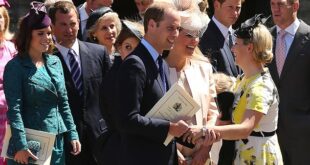The National Union of Journalists (NUJ) has hit back at plans by the Duke and Duchess of Sussex to restrict the national press’s access to their official engagements, branding it “completely unacceptable”.
Harry and Meghan, who are quitting as senior royals, launched an attack on the UK’s newspapers which coincided with their shock announcement.
In its media section, their new website Sussexroyal.com criticised Britain’s royal correspondents and said the couple would no longer participate in the “royal rota” system which has been used by Buckingham Palace for decades.
Michelle Stanistreet, NUJ general secretary, described the move as appearing to attempt “to prevent the media from functioning and compromising the ability of journalists to do their jobs, which is completely unacceptable”.
Ms Stanistreet added: “The rota system is not perfect, but it does allow UK media to cover the British royal family – an institution maintained by the public purse.
“We cannot have a situation where journalists writing about the Duke and Duchess of Sussex can only do so if they have the royal seal of approval.
“We reject sweeping criticism of journalists and media organisations by the duke and duchess, who simultaneously claim to respect the role of the media.”
But the Hacked Off campaign group, which calls for greater press regulation, said Harry and Meghan had been subjected to sustained abuse by the UK media.
Hannah Mian, campaigns manager for Hacked Off, said: “For too long the royals have been expected to put up with whatever racist, false or otherwise abusive coverage comes their way, with concerns about the standards and fairness of royal reporting dismissed as akin to complaining about the weather.
“In refusing to accept this abusive reporting as an inevitability of the role, the Duke and Duchess of Sussex have shown that there is another way.
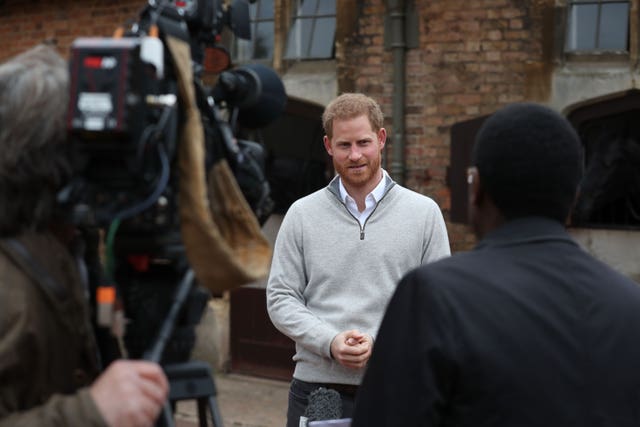
“Our media is a powerful political force and it needs to be held accountable.”
Harry and Meghan’s new approach, which will begin in the spring, will deny automatic access to royal correspondents, and focus instead on social media, “credible outlets”, specialist media, grassroots media organisations and young, up-and-coming journalists.
Their website said it was a misconception that Britain’s royal correspondents were credible sources on the royal family, and accused them of frequent misreporting.
The royal rota gives accredited correspondents on UK national newspapers access to royal engagements on a pooled sharing basis to ensure maximum press coverage with minimum disruption to the engagement itself.
It cites the UK media outlets as The Daily Express, The Daily Mail, The Daily Mirror, The Evening Standard, The Telegraph, The Times and The Sun.
Other media have access via the royal rota such as news agencies, including PA, photographers and broadcasters.
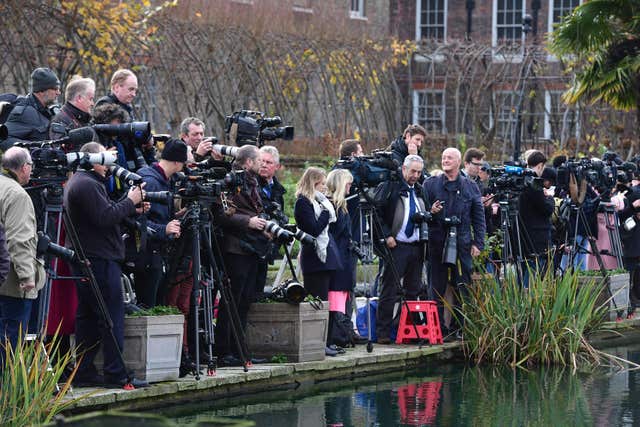
Outlining Harry and Meghan’s stance on media, the website said: “The duke and duchess believe in a free, strong and open media industry, which upholds accuracy and fosters inclusivity, diversity and tolerance.”
Harry’s relationship with the press has been a complicated and difficult one.
His dislike of the media has seemingly intensified following the birth of son Archie Mountbatten-Windsor, as he strives to protect his family.
Harry grew up fully aware of the impact of the overwhelming media intrusion on the daily life of his mother Diana, Princess of Wales.
He was only 12 when the princess was killed in a crash after her car, driven at speed by a drunk chauffeur, was chased through the streets of Paris by the paparazzi.
Soon after he began dating American actress Meghan Markle, Harry attacked the media over its “abuse and harassment” of his girlfriend, with Kensington Palace warning on his behalf: “This is not a game – it is her life.”
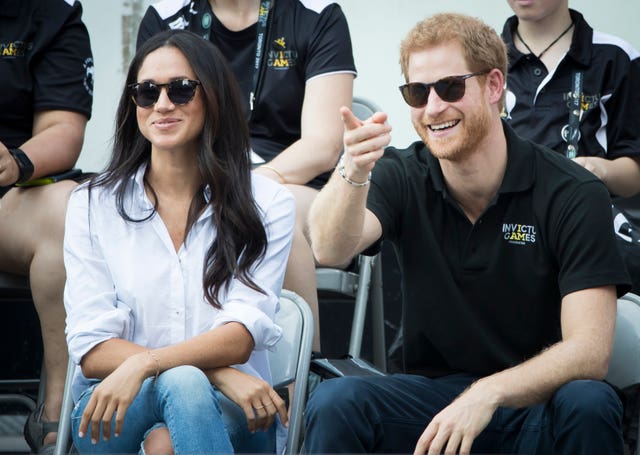
In October 2019, the Sussexes overshadowed the end of their official tour to Africa by each bringing separate legal actions against parts of the press, with Meghan suing the Mail On Sunday over an alleged breach of privacy when it published a private letter between her and her estranged father.
The Mail On Sunday said it stands by its story and will be defending the case vigorously.
Harry later filed his own proceedings at the High Court against News Group Newspapers, which owns The Sun and the now defunct News Of The World, and Reach plc, which owns the Daily Mirror, in relation to the alleged illegal interception of voicemail messages.
Along with the legal action, Harry released a scathing attack on the tabloid press, in which he heavily criticised certain sections of the media for conducting what he called a “ruthless campaign” against his wife.
In the ITV television documentary following the tour, Harry said he was determined to protect his family.
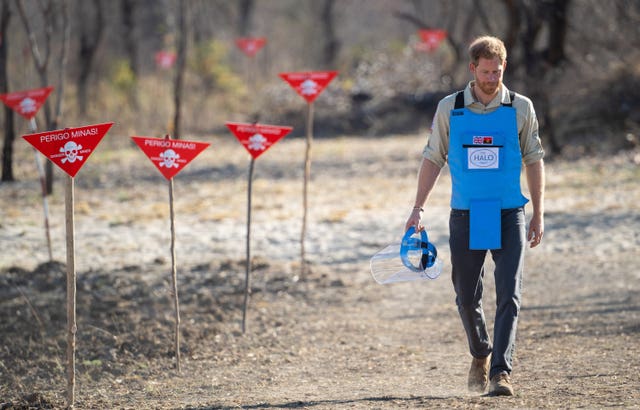
Meghan admitted to feeling vulnerable, and spoke of the pressures of royal life amid intense tabloid interest.
“When I first met my now-husband my friends were really happy because I was so happy, but my British friends said to me, ‘I’m sure he’s great but you shouldn’t do it because the British tabloids will destroy your life’,” she said.
She added: “I think I really tried to adopt this British sensibility of a stiff upper lip.
“I tried, I really tried, but I think what that does internally is probably really damaging, and the biggest thing that I know is that I never thought this would be easy but I thought it would be fair, and that is the part that is hard to reconcile but (I) just take each day as it comes.”


